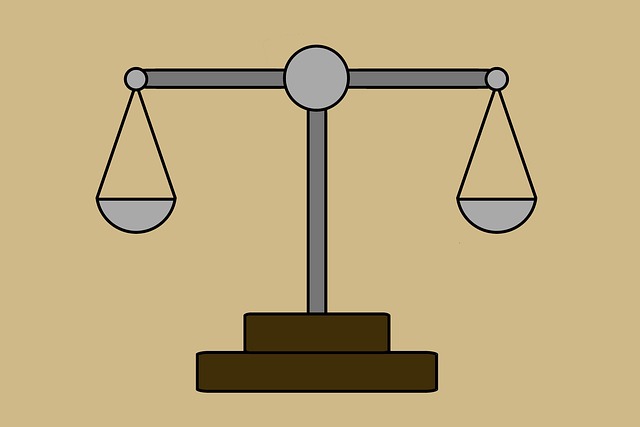C-Level Investigations uncover evidence of Legal Implications of Securities Compliance Failures and white-collar crimes in corporate executives. These complex legal frameworks, varying by jurisdiction, carry severe consequences including civil penalties, criminal charges, and reputation damage. Proactive measures like robust internal controls and training mitigate these implications. After investigations, updating policies, open communication, and collaboration with legal counsel ensure compliance and avoid future failures.
In the dynamic landscape of corporate governance, C-level investigations play a pivotal role in ensuring accountability. This comprehensive guide delves into the intricacies of high-stakes inquiries, focusing on understanding the legal framework surrounding securities compliance failures. We explore the potential consequences for top executives and provide insights into investigating corporate governance breaches effectively. Furthermore, we discuss strategies to mitigate risks post-investigation, highlighting the critical balance between justice and organizational resilience. Uncovering the legal implications of securities non-compliance is essential for businesses navigating today’s regulatory environment.
- Understanding C-Level Investigations: A Deep Dive
- Legal Framework for Securities Compliance Failures
- Potential Consequences for Top-Tier Executive Missteps
- Investigating Corporate Governance Breaches
- Mitigating Risks: Post-Investigation Strategies
Understanding C-Level Investigations: A Deep Dive
C-Level Investigations refer to high-level inquiries focused on corporate executives, often at the C-suite level (CEO, CFO, etc.), in cases involving suspected misconduct or legal violations. These investigations delve into complex matters that can have significant legal implications of securities compliance failures and white collar and economic crimes. They require meticulous attention to detail and a deep understanding of both criminal and corporate law.
The process involves a thorough examination of financial records, email communications, board meeting minutes, and other relevant documents. Experts in forensic accounting, digital forensics, and legal professionals specializing in general criminal defense play pivotal roles in uncovering evidence, interpreting data, and ensuring the rights of individuals involved are protected. The ultimate goal is to determine liability, mitigate potential penalties, and ensure complete dismissal of all charges where applicable.
Legal Framework for Securities Compliance Failures
The Legal Framework for addressing Securities Compliance Failures is a complex landscape that varies across jurisdictions. When companies or individuals fail to adhere to regulatory requirements, they face significant legal implications. These include civil penalties and fines, which can vary widely depending on the severity of the violation and the company’s financial standing. Moreover, non-compliance may lead to criminal charges, with cases often resulting in high-profile jury trials across the country.
The focus for investigators is not merely punitive but also preventative. By understanding the legal framework, companies can better navigate the intricate web of securities regulations, thereby avoiding indictment and potential reputational damage. Effective compliance strategies involve staying informed about legislative changes and implementing robust internal controls to ensure adherence to standards, ultimately fostering a culture of ethical business practices.
Potential Consequences for Top-Tier Executive Missteps
The potential consequences for top-tier executives who find themselves on the wrong side of a legal investigation can be severe. When C-level investigations are launched, especially those involving securities compliance failures, it often leads to significant legal implications. These missteps can result in not only substantial financial penalties but also damage to an individual’s reputation and career prospects. Companies and their leaders must understand that non-compliance with securities regulations is a serious matter, potentially leading to civil lawsuits and even criminal charges.
The impact of such investigations extends beyond the immediate legal realm. A high-profile case can attract media scrutiny and public judgment, making it challenging for executives to maintain their professional standing. In extreme cases, individuals may face jury trials, which could result in achieving extraordinary results for both parties involved. Therefore, proactive measures, robust internal controls, and a strong general criminal defense strategy are essential to mitigate these risks and protect the interests of all stakeholders.
Investigating Corporate Governance Breaches
In today’s business landscape, maintaining robust corporate governance is no longer a best practice but an absolute necessity. When breaches occur, particularly involving securities compliance failures, they can have severe legal implications. These issues often trigger complex investigations at the C-level, requiring meticulous attention to detail and a deep understanding of regulatory frameworks. The consequences of such breaches can include substantial financial penalties, damage to corporate reputation, and even personal liability for executives involved.
Moreover, companies facing these challenges must be prepared for potential criminal proceedings, which could culminate in an indictment. However, proactive measures, including robust internal controls and comprehensive training programs, can significantly mitigate these risks. A strong white-collar defense strategy can help organizations avoid indictment and secure a complete dismissal of all charges, ensuring business continuity and protecting the interests of key stakeholders.
Mitigating Risks: Post-Investigation Strategies
After a C-Level investigation, mitigating risks involves implementing strategies that address any identified gaps in securities compliance. Companies should review and update their internal policies and procedures to ensure they align with legal requirements. This proactive approach helps prevent future failures and reduces the Legal Implications of Securities Compliance Failures, which can have severe consequences, including significant financial penalties and damage to reputation.
Post-investigation, it’s crucial to engage in open communication with employees at all levels. Educating staff about securities regulations fosters a culture of compliance and accountability. Moreover, collaborating closely with legal counsel allows organizations to navigate any complex regulatory environments effectively. This ensures that the company remains compliant not just across the country but also within diverse philanthropic and political communities, ultimately safeguarding against potential jury trials stemming from non-compliance issues.
C-Level investigations, delving into corporate governance and securities compliance failures, carry significant legal implications. With potential consequences for top-tier executives, a robust understanding of these processes is vital. By navigating through the complex web of regulations, companies can mitigate risks and foster a culture of accountability. Implementing post-investigation strategies ensures that lessons learned translate into enhanced corporate governance, ultimately strengthening organizational integrity.






